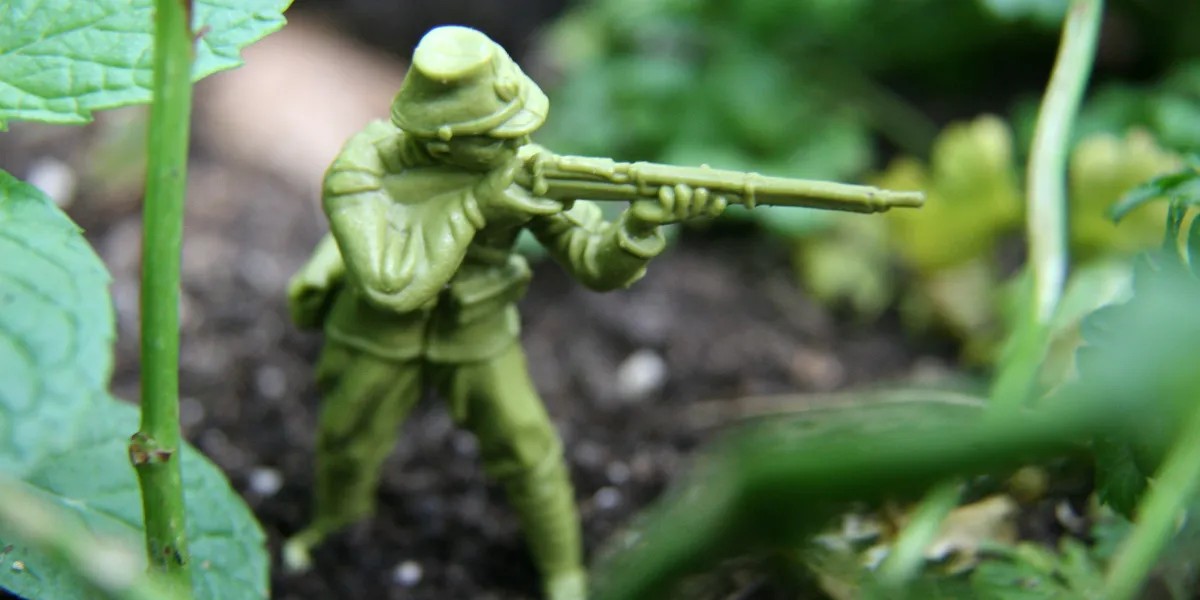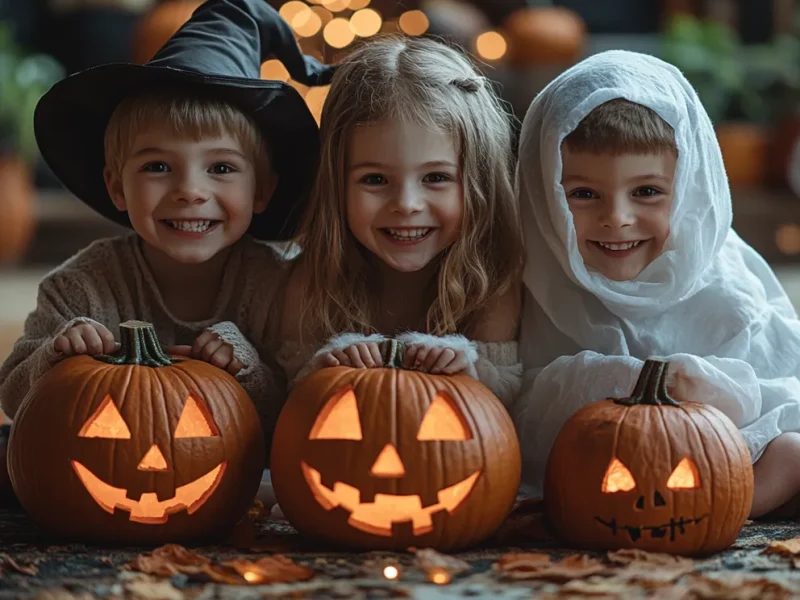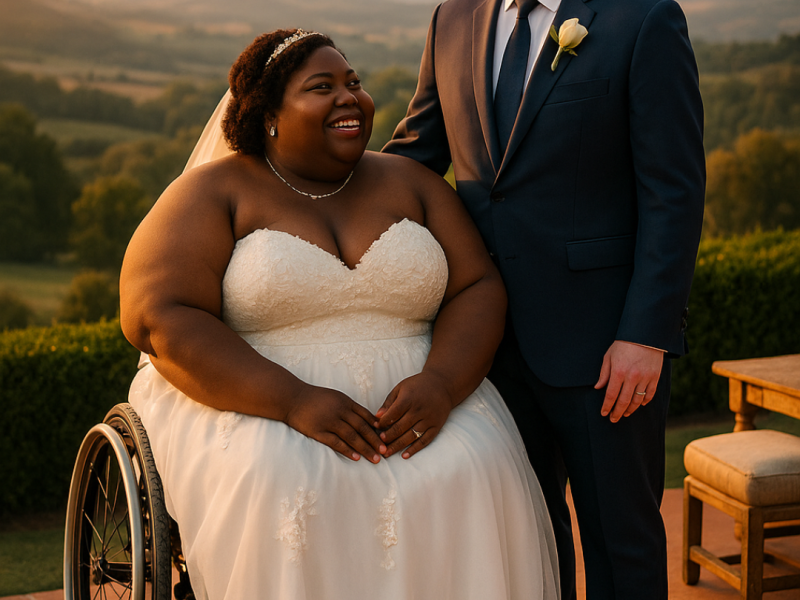My grandfather gave me a single green plastic soldier every year on my birthday, never with a card or explanation. It wasn’t until after he passed that I discovered those tiny toys were part of a mystery for nearly two decades, just for me!
I always looked up to my grandfather. Grandpa Henry wasn’t just wise, he was magnetic and loved puzzles more than anyone I’ve ever met. Little did I know that even after death, he’d leave me something special.
My grandpa was a fascinating man. Even brushing his teeth, the man would hum riddles or mutter codes like he was testing the water pressure of the universe. He had that quiet, effortless charisma, like someone who knew all the secrets of the world but never bragged about it.
When I was little, Henry always made time for my sister, Emma, and me. He used to invent backyard scavenger hunts for us. “The golden key’s hidden where the frogs jump free!” he’d say, grinning beneath his scruffy gray beard.
We’d spend hours chasing clues and collecting trinkets that looked worthless until he explained their meaning. If it wasn’t scavenger hunts, he entertained us with riddles and brainteasers. I loved solving puzzles with him. It became our thing: mystery and meaning.
But starting on my eighth birthday, the mysteries got stranger.
He started giving me green plastic soldiers.
Just one. No card, no “Happy Birthday, champ,” no story or explanation. Just a single, rigid toy soldier, the kind you’d find in a dollar store bin, wrapped in a piece of old newspaper and placed in a plain box.
“Thanks, Grandpa,” I said, confused.
He only smiled, eyes twinkling behind his thick glasses. “Every army needs a leader.”
At the time, I figured it was just his quirky sense of humor. Maybe he thought boys liked army stuff. So I thanked him, hugged him, and placed the soldier on my shelf next to my actual presents.
The next year? Same thing. Different pose, same kind of green plastic soldier. No explanation. No note. Each time, I politely acted surprised whenever I opened the box, even though I knew exactly what was inside.
But I didn’t want to disappoint him or complain; he was so good to us. By the time I was sixteen, the shelf above my bed had a whole row of them. I joked with Emma about it.
“Maybe he’s trying to tell you something,” she teased. “Like… you’re supposed to take over a toy store.”
“Or he’s slowly replacing my brain with plastic,” I replied.
But deep down, I was starting to wonder if the ritual meant something more. Every year, the same gift, wrapped in the same kind of yellowed newspaper with war headlines and crossword puzzles half-completed in pencil. The soldiers were always clean, but he never said a word about them.
When I turned twenty-six, I expected to get another one in the mail.
It didn’t come.
That year, it was my mom who handed it to me at the hospital. Her hands shook. Her eyes were red.
“He wanted you to have this,” she said. She just handed me the box and pressed her lips together, fighting tears.
Grandpa was in hospice care by then. Skin like parchment, breaths coming thin and slow. I held the last green soldier in my palm and leaned over his bed to hug him. At that point, he couldn’t even speak.
“Thanks, Grandpa,” I whispered, voice trembling.
His eyes, those warm, secret-keeping eyes, blinked slowly at me. And then he closed them.
Six months later, he passed.
The funeral was small, filled with folks I barely knew, people who spoke of Henry as a chess champion, a carpenter, a genius, a war vet. I stood there, clutching the final soldier in my coat pocket, still just as lost.
A few weeks after the funeral, I sat in my apartment staring at my bookshelf. Eighteen green soldiers stood in formation, solemn and silent. I had a full battalion by then. I considered boxing them up, maybe donating them.
But something about them rooted me in place.
That’s when Emma showed up.
She kicked the door closed behind her, tossed her keys on the counter, and made a beeline for the shelf. She stared at the soldiers, arms crossed, and then sighed dramatically.
“You seriously haven’t noticed all these years?” her face full of disbelief.
“Noticed what?” I asked, blinking.
She picked up one of the soldiers, turned it over, and pointed to the base.
“You’re a whole college student now. Try to be more attentive,” she said, handing it to me.
I squinted. Sure enough: 12. And beneath it, tiny and faded: 2009, the year I received that soldier.
“Look at another,” she said.
I pulled down a different one. 53. And beneath that: 2010.
I felt the air shift around me.
We spread all eighteen soldiers across the table and flipped them one by one. Each had a number and a year. Sixteen had a number and a year; the seventeenth had only a letter: N. The final soldier, the one from the hospital, had E.
“North… East,” I said aloud.
Emma nodded, folding her arms. “Coordinates.”
Heart pounding, I grabbed my laptop and entered the numbers, and gasped! The coordinates led to a wooded area just outside our hometown! I didn’t sleep that night. My mind raced with possibilities. Grandpa’s riddles, his puzzles — this was the biggest one yet!
The next morning, I drove three hours back home. I followed the coordinates to a small dirt road framed by towering pines. At the very end stood a cottage, weathered, peaceful, like it had grown from the earth itself.
The garden was overgrown but carefully so, as if the chaos had once been trimmed with care.
I knocked, unsure what to expect.
An elderly man opened the door. He had silver hair combed neatly back, suspenders over a plaid shirt, and kind, knowing eyes.
“You must be Henry’s grandson,” he said, as if he’d been expecting me for years. “I’m Walter. Come on in.”
I stepped inside.
The cottage smelled of cedar and time. We sat at his kitchen table, sipping tea that he’d already prepared. He never asked why I was there. Just began.
“Henry and I were best friends,” he said. “From high school to the very end. He started building this place with an idea, something to pass on. Something… personal. I helped. He told me to wait. That someday, you’d find your way here.”
He slid a ring of old keys across the table.
“It’s just a short walk from here,” he continued. “Through the woods. You’ll find a smaller cottage. He made it for you. Told me not to show it to anyone else.”
I took the keys, heart thudding.
Walter pointed toward a path behind his house.
“At the end. You’ll understand when you get there.”
The path behind the cottage was lined with mossy stones. Birds chirped overhead, the leaves whispering in a breeze that felt like it carried his voice. I followed the winding trail until I found it.
A tiny, ivy-covered cottage, like a memory preserved in real life. It looked like something out of a forgotten fairy tale.
The door creaked open when I used the key.
Inside, everything was… bizarre.
My jaw dropped!
The walls were covered in puzzles, real ones! Crosswords. Riddles on painted canvases. Mechanical boxes with locks on drawers, ciphers carved into wood, cryptic notes, and spinning dials. It was like a full escape room, but it wasn’t for customers. It was for me!
Each puzzle I solved led to something personal.
A box opened to reveal a black-and-white photo of Grandpa in uniform with a young Walter. Another puzzle revealed a cassette tape with his voice: “If you’re hearing this, kiddo… congrats. You solved my favorite mystery.”
There were journals, love letters to my grandma and riddles wrapped in emotion. Every drawer revealed more than just items; it revealed Grandpa’s soul. His fears. His dreams. His love for us.
The final puzzle was hidden in a drawer in the fireplace, a sequence of gears I had to align to spell my name.
It opened a small wooden drawer.
Inside: a single envelope.
If you’re reading this, it means you followed the trail. Good. I’ve been building this place for years — not to hide anything from you, but to show you how much I loved thinking, building, solving… and how much I hoped you would too. This is all yours now. Use it well. And if you want, let others play too. Let the world in on our little game.
— Grandpa
Tears welled in my eyes. I stayed in that cottage for hours, reading, listening, and touching every piece of the puzzle he left me.
That letter changed everything.
I quit my marketing job that month.
I moved back home, and with Walter’s help, I converted Grandpa’s puzzle haven into something bigger. We called it “The Soldier’s Trail.” A real-life escape room where every clue, every riddle, came from Grandpa’s designs. The whole town got into it. Tourists, too. It became a place not just for games, but for connection, wonder, and memory.
On opening day, I placed one little green soldier at the front desk.
And every year since, on my birthday, I’ve added one more.
For legacy.
And for love.


